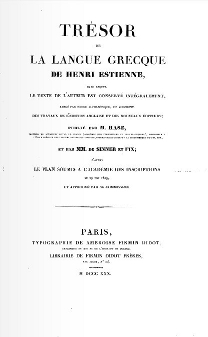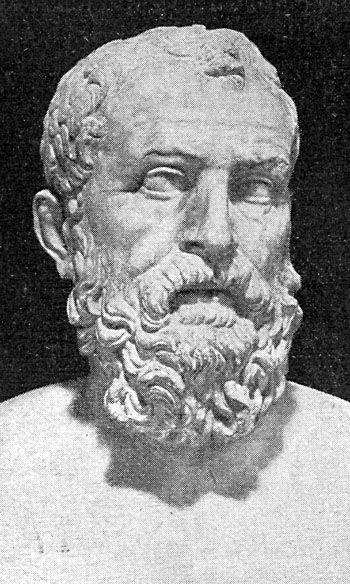|
On Virtue
''On Virtue'' ( grc-gre, Περὶ Ἀρετῆς; la, De Virtute) is a Socratic dialogue attributed to Plato, but which is considered spurious. In the short dialogue, Socrates discusses with a friend questions about whether virtue can be taught.John Madison Cooper, D. S. Hutchinson, (1997), ''Plato, Complete works'', page 1694. Hackett Publishing. To answer this question, the author of the dialogue does little more than copy out a few passages from the ''Meno'' almost word for word. W. K. C. Guthrie, (1986), ''A history of Greek philosophy: The later Plato and the Academy'', page 398. Cambridge University Press References External links ''On Virtue''translated by George BurgesFree public domain audiobook version of ''On Virtue''translated by George Burges * . Collection includes On Virtue. George Burges George Burges (; 1786 – 11 January 1864) was an English classical scholar who published translations of the works of Euripides, Aeschylus, Sophocles, and Plato. Biograp ... [...More Info...] [...Related Items...] OR: [Wikipedia] [Google] [Baidu] |
Henri Estienne
Henri Estienne (; ; 1528 or 15311598), also known as Henricus Stephanus (), was a French printer and classical scholar. He was the eldest son of Robert Estienne. He was instructed in Latin, Greek, and Hebrew by his father and would eventually take over the Estienne printing firm which his father owned in 1559 when his father died. His most well-known work was the ''Thesaurus graecae linguae'', which was printed in five volumes. The basis of Greek lexicology, no thesaurus would rival that of Estienne's for three hundred years. Among his many publications of Greek authors, his publications of Plato are the source of Stephanus pagination, which is still used to refer to Plato's works. Estienne died in Lyon in 1598. Life Henri Estienne was born in Paris in 1528 or 1531. His father instructed him in Latin, Greek, Hebrew, and typography, and according to a note in his edition of ''Aulus Gellius'' (1585), he picked up some Latin as a child, as that language was used as a in the multi- ... [...More Info...] [...Related Items...] OR: [Wikipedia] [Google] [Baidu] |
Socratic Dialogue
Socratic dialogue ( grc, Σωκρατικὸς λόγος) is a genre of literary prose developed in Greece at the turn of the fourth century BC. The earliest ones are preserved in the works of Plato and Xenophon and all involve Socrates as the protagonist. These dialogues and subsequent ones in the genre present a discussion of moral and philosophical problems between two or more individuals illustrating the application of the Socratic method. The dialogues may be either dramatic or narrative. While Socrates is often the main participant, his presence in the dialogue is not essential to the genre. Platonic dialogues Most of the Socratic dialogues referred to today are those of Plato. Platonic dialogues defined the literary genre subsequent philosophers used. Plato wrote approximately 35 dialogues, in most of which Socrates is the main character. Strictly speaking, the term refers to works in which Socrates is a character. As a genre, however, other texts are included; Plato's ' ... [...More Info...] [...Related Items...] OR: [Wikipedia] [Google] [Baidu] |
Plato
Plato ( ; grc-gre, Πλάτων ; 428/427 or 424/423 – 348/347 BC) was a Greek philosopher born in Athens during the Classical period in Ancient Greece. He founded the Platonist school of thought and the Academy, the first institution of higher learning on the European continent. Along with his teacher, Socrates, and his student, Aristotle, Plato is a central figure in the history of Ancient Greek philosophy and the Western and Middle Eastern philosophies descended from it. He has also shaped religion and spirituality. The so-called neoplatonism of his interpreter Plotinus greatly influenced both Christianity (through Church Fathers such as Augustine) and Islamic philosophy (through e.g. Al-Farabi). In modern times, Friedrich Nietzsche diagnosed Western culture as growing in the shadow of Plato (famously calling Christianity "Platonism for the masses"), while Alfred North Whitehead famously said: "the safest general characterization of the European philosophical tra ... [...More Info...] [...Related Items...] OR: [Wikipedia] [Google] [Baidu] |
Socrates
Socrates (; ; –399 BC) was a Greek philosopher from Athens who is credited as the founder of Western philosophy and among the first moral philosophers of the ethical tradition of thought. An enigmatic figure, Socrates authored no texts and is known mainly through the posthumous accounts of classical writers, particularly his students Plato and Xenophon. These accounts are written as dialogues, in which Socrates and his interlocutors examine a subject in the style of question and answer; they gave rise to the Socratic dialogue literary genre. Contradictory accounts of Socrates make a reconstruction of his philosophy nearly impossible, a situation known as the Socratic problem. Socrates was a polarizing figure in Athenian society. In 399 BC, he was accused of impiety and corrupting the youth. After a trial that lasted a day, he was sentenced to death. He spent his last day in prison, refusing offers to help him escape. Plato's dialogues are among the most co ... [...More Info...] [...Related Items...] OR: [Wikipedia] [Google] [Baidu] |
Meno
''Meno'' (; grc-gre, Μένων, ''Ménōn'') is a Socratic dialogue by Plato. Meno begins the dialogue by asking Socrates whether virtue is taught, acquired by practice, or comes by nature. In order to determine whether virtue is teachable or not, Socrates tells Meno that they first need to determine what virtue is. When the characters speak of virtue, or rather ''arete'', they refer to virtue in general, rather than particular virtues, such as justice or temperance. The first part of the work showcases Socratic dialectical style; Meno, unable to adequately define virtue, is reduced to confusion or aporia. Socrates suggests that they seek an adequate definition for virtue together. In response, Meno suggests that it is impossible to seek what one does not know, because one will be unable to determine whether one has found it. Socrates challenges Meno's argument, often called "Meno's Paradox" or the "Learner's Paradox", by introducing the theory of knowledge as recollectio ... [...More Info...] [...Related Items...] OR: [Wikipedia] [Google] [Baidu] |
George Burges
George Burges (; 1786 – 11 January 1864) was an English classical scholar who published translations of the works of Euripides, Aeschylus, Sophocles, and Plato. Biography Burges was born in Bengal, India, and was probably the son of Thomas Burges (d.1799) of Calcutta. He was educated at Charterhouse School and Trinity College, Cambridge, taking his B.A. degree in 1807 and obtaining one of the members' prizes both in 1808 and 1809 before becoming an M.A. in 1810. He stayed up at Cambridge and became a most successful coach and tutor. He had a great reputation as a Greek scholar, and was a somewhat acrimonious critic of rival scholars, especially Bishop Blomfield. Subsequently, he fell into embarrassed circumstances through injudicious speculation, and in 1841 a civil list pension of £100 per annum was bestowed upon him. He died at Ramsgate, on 11 January 1864. Burges was a man of great learning and industry, but too fond of introducing arbitrary emendations into the text of ... [...More Info...] [...Related Items...] OR: [Wikipedia] [Google] [Baidu] |
Dialogues Of Plato
Plato ( ; grc-gre, Πλάτων ; 428/427 or 424/423 – 348/347 BC) was a Greek philosopher born in Athens during the Classical period in Ancient Greece. He founded the Platonist school of thought and the Academy, the first institution of higher learning on the European continent. Along with his teacher, Socrates, and his student, Aristotle, Plato is a central figure in the history of Ancient Greek philosophy and the Western and Middle Eastern philosophies descended from it. He has also shaped religion and spirituality. The so-called neoplatonism of his interpreter Plotinus greatly influenced both Christianity (through Church Fathers such as Augustine) and Islamic philosophy (through e.g. Al-Farabi). In modern times, Friedrich Nietzsche diagnosed Western culture as growing in the shadow of Plato (famously calling Christianity "Platonism for the masses"), while Alfred North Whitehead famously said: "the safest general characterization of the European philosophical tradit ... [...More Info...] [...Related Items...] OR: [Wikipedia] [Google] [Baidu] |


.jpg)
_drawing_29.gif)
